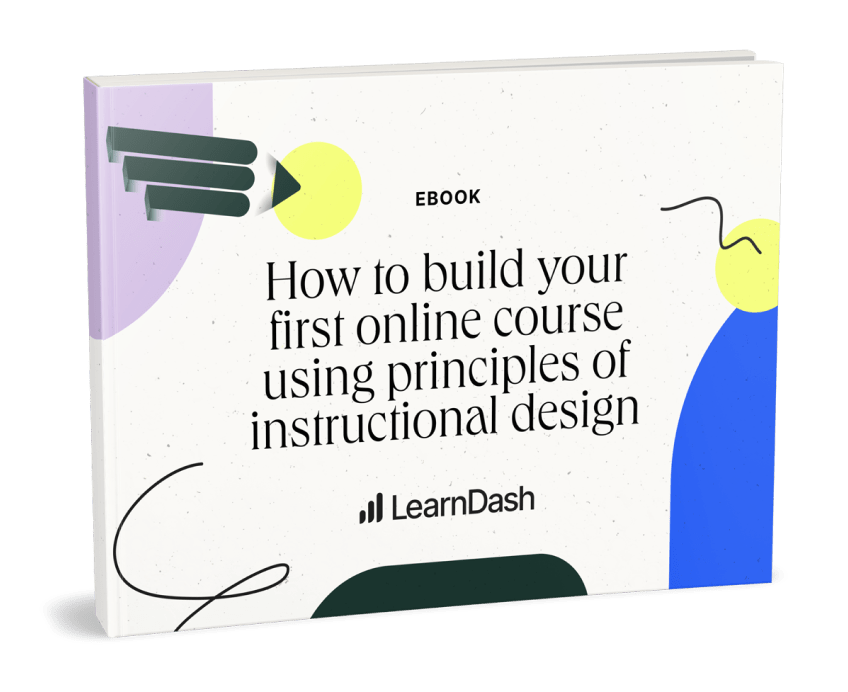
Are 3rd Party Plugins a Bug or a Feature?
Many hosted LMS solutions like to knock open-source platforms for relying on 3rd-party plugins to expand functionality. Here’s why that’s a good thing.
Do enough research into various online learning platforms, and you’ll notice that a lot of the hosted, “all-in-one” LMSs (like Teachable or Thinkific) are quick to knock WordPress sites for relying on 3rd party plugins to expand functionality. As the argument goes, all-in-one platforms are better because everything naturally works together. You don’t have conflicting programs, you don’t have to manage different update schedules, and you don’t have to keep paying for more products just to get the feature you need.
It’s a compelling argument.
Unfortunately, the solution all-in-one platforms offer isn’t quite what it’s made out to be.
Frequently, the features offered on these platforms only seem impressive on the surface. Dig a little deeper, and it soon becomes apparent that what they’re offering is pretty shallow. (An example: Teachable only offers one question type for their quizzes. We offer eight, with the option to integrate with other plugins to provide more.)
We believe that an LMS that integrates with a suite of 3rd party solutions gives everyone the freedom to do what they do best. Here’s why.
1. You don’t have to wait on someone else’s development schedule.
Features take time to develop—especially if they’re being properly tested. Unfortunately, on an all-in-one platform, every feature has its own place in the development queue, and the one you want most may be farther down the list than ones you don’t care about at all. In some cases, the feature isn’t on the list at all.
With a hosted platform, if this is the case, you’re out of luck. You may spend years hoping for your dream feature to become the next priority, and even once it does there’s no guarantee it will be everything you hoped.
An open-source solution, like WordPress, means you don’t have this problem. Someone out there has probably developed a plugin for the feature you want, and if they haven’t, you can hire a developer to build it for you.
2. The feature you really need isn’t always one price tier out of reach.
All-in-one services, like any business, are trying to make money. To maximize their income, most take the time-honored approach of offering a tiered system. Basic tiers onboard new users with minimal features, while more advanced options are for the higher-tier plans.
This can be a source for many users, who feel that the feature they really want is always a step up the pricing ladder. Again, this makes sense from a business standpoint (developing features is expensive!), but for many users it just doesn’t feel good. No one wants to pay for a bunch of features they don’t need only to have to pay extra for the ones they really do.
Plugins mean you can pick and choose which features you want, and then only pay for those. It’s true that you’ll have more licenses to manage, but the sum of 3rd party plugins along with your LMS is usually less expensive than the pricing tier you would pay on a hosted solution, where you’ll also be paying for the features you don’t need.
3. You don’t have to settle for a solution that underserves your niche.
Many courses serve very specific audiences, and with those audiences come niche use cases. Because hosted platforms are almost always developing for the lowest common denominator, the needs of niche users can sometimes be overlooked.
This wouldn’t be a problem if users could choose other options, but hosted LMSs are almost always closed platform. They may offer their own 3rd party integrations for some functions, but even when they do, it will be with a single business partner. (On Teachable, you can add a forum to your course, but only if you use the only 3rd party solution available, which costs $99/mo.)
The beauty of a plugin market, like what you find on WordPress, is that it will offer you a range of options, one of which is sure to be the solution you actually need. And, like we said before, if you have an extreme niche requirement that isn’t yet served by the market, you can hire a developer to build it out for you.
4. If you don’t like what your platform provides, you can go elsewhere.
Finally, if you’re on a hosted platform and there’s something about the features they offer that you don’t like, you’re stuck, because all-in-one also means all-or-nothing.
On the other hand, if you’re working with an open-source LMS, you’re never out of options. Don’t like how one feature works? Another plugin is there to provide you with something better. And the fact that users can change plugins if they want to means that plugin developers have a lot of incentives to stay competitive with their offerings. Hosted platforms don’t have those incentives.
Choose an LMS that gives you options—but also lets you find your own.
A few months ago, we wrote about the advantages of choosing a lean LMS. Our perspective was this: The more resources we spend developing features for segments of our user base, the more we have to charge everyone for functions they may never use, especially if they have a 3rd party solution they actually prefer.
This isn’t to say we never develop new features. Recently, we’ve expanded our platform to include add-ons for gamification and membership. However, we are very selective about where we put our resources, because we want to be sure that the features we offer will serve the broadest portion of our user base—and that what we develop is created thoughtfully, so that it functions well and is easy to use.
Even so, we are constantly encountering use cases that we would never have thought of on our own. Online education is a huge space—one that includes educators from around the world, teaching nearly every subject imaginable. It’s also a creative space, where educators should be able to teach courses however they see fit, without being limited by a platform.
In the end, “all-in-one” platforms are like “one size fits all” clothing: true only at the most basic sense, and never what you really need.
We prefer to go a different route. By combining the stability of our platform with the flexibility of WordPress, our users get the best of both worlds.

LearnDash Collaborator
@LearnDashLMS







